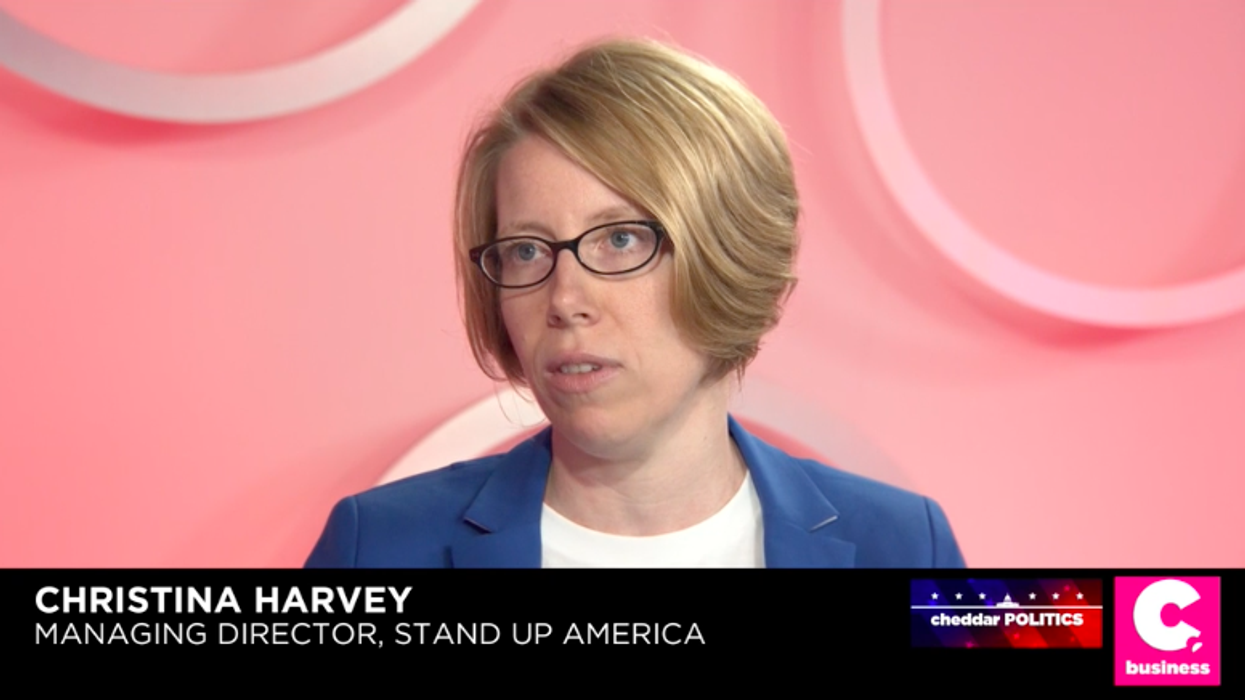The progressive Stand Up America, created after the 2016 election, became particularly visible last year pressing Congress to spend more on election security — and is reprising that role now in pushing for more federal funding to boost voting options in light of the pandemic. Christina Harvey became managing director, or No. 2 staffer, last year after her employer of 15 years, Eric Schneiderman, resigned as New York attorney general when four women accused him of physical abuse. She had joined his state Senate staff in 2003 after her first job, as a union organizer. Her answers have been edited for clarity and length.
What's the tweet-length description of your organization?
Working to strengthen our democracy by empowering our members to advocate for policies that increase voter participation and unrig a corrupt system that stands in the way of progressive change.
Describe your very first civic engagement.
I'm a coal-miner's daughter from West Virginia, raised by a single mother. I stood on my first picket line when I was 6 years old and my mom was on strike.
What was your biggest professional triumph?
Repealing New York's draconian Rockefeller Drug Laws, passing the original millionaire's tax and ending prison-based gerrymandering in a single session of the state Senate. All three were in my legislative portfolio.
And your most disappointing setback?
Driving 330,000 calls to Congress to impeach President Trump — but then the Senate not removing him.
How does your identity influence the way you go about your work?
I was fortunate enough to be working class growing up, because my mom had a steady union job, but I was always conscious of how easy it would be to slip into poverty like many of the kids around me. One set of layoffs and a month or two of unemployment and we would have been there. I was able to stay in a Sandinista cooperative in Nicaragua in high school, study liberation theology with the Jesuits in El Salvador and volunteer in an orphanage in Guatemala while in college — and saw conditions similar or worse than in rural West Virginia.
These experiences ingrained in me a sense of just how lucky I am in every moment, and probably a fear of ever resting because you might turn around and not be one of the lucky ones anymore. Every time I turn on the faucet and clean water comes out, or I have a meal too big to finish, I think about how I am literally among the most privileged people on this planet. That perspective gives me a visceral sense of some inequalities that need righted in the world. It also makes it harder to complain or sweat the small stuff, and easier to focus on the work at hand and the big picture.
What's the best advice you've ever been given?
"Se hace camino al andar." You make the way as you go. It's one of the most famous lines by the early 20th century Spanish poet Antonio Machado.
Create a new flavor for Ben & Jerry's.
SUA — Strawberry, Ugli-fruit, Apple.
What's your favorite political movie or TV show?
"Homeland."
What's the last thing you do on your phone at night?
Read Politico Nightly.
What is your deepest, darkest secret (something fun!)?
I only make my child take a bath twice a week since the quarantine started. Yeah, it's disgusting.




















